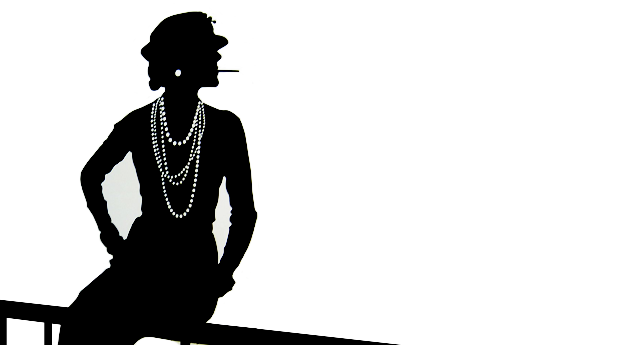No. You Can't Buy Me Coffee

Our story begins with me at an industry event. I’m shaking hands, I’m smiling, I’m swapping business cards with people. I’m trying to represent the brand. I’m trying to meet potential new hires. I’m trying to learn from my industry peers.
Networking is networking, some like it, some don’t. I don’t particularly like it, but it’s good for the company and I can handle it.
Sadly, tragedy strikes my inbox within days of the event. It explodes with dozens of emails from all too eager salesmen offering to buy me a cup of coffee. And of course they’ll also introduce me to their yadda yadda service or their whatever-the-hell product. It’s not a sales pitch, it’s coffee among friends. They want to bend my ear, run something by, have a chat, pick my brain, they want to take me out.
Defining "Brand" in the Experiential Age
We all know what a brand is, right? Real quick, before you read below—what’s your definition?
It’s a little harder to define than you think. We all have an inkling, an instinctual understanding. But actually defining it is a bit of a challenge.
Oxford Dictionary defines brand in the following manner:
A type of product manufactured by a particular company under a particular name: 'a new brand of detergent’
This seems limiting and doesn’t really reflect the power and potential of the word.
According to Wikipedia,
“A brand is a name, term, design or other feature that distinguishes one seller's product from those of others.”
This still seems to miss the mark and is way too narrow as well.
Seth Godin came up with a better, more evolved definition back in 2009:
"A brand is the set of expectations, memories, stories and relationships that, taken together, account for a consumer’s decision to choose one product or service over another. If the consumer (whether it’s a business, a buyer, a voter or a donor) doesn’t pay a premium, make a selection or spread the word, then no brand value exists for that consumer."
That feels a lot better. However, that was nearly six years ago. Does it still stand up?
What It Takes to Get Hired at Nebo

So, you want to work at Nebo? Getting your foot in the door at most agencies is known for being notoriously difficult. Competition is typically fierce, and with the job market still rebounding from the 2008 economic meltdown, it’s even more brutal.
There are millions of articles about how to find a job, how to prepare for an interview and so on. Throughout my career I’ve interviewed many, many applicants. When we say Nebo is a human-centered agency, we mean it in all aspects of how we run our business — especially how we bring on new team members.
If you’re interested in getting a position at Nebo, here are a few suggestions to help start you off on the right foot.
What the PR Industry Can Learn from the Little Black Dress

The LBD. The little black dress. We’ve all heard of it, but I bet every one of us conjures a different image when we hear those three little words. Coco Chanel coined the term in 1926 when her design was featured on the cover of Vogue. It was an instant classic. The magazine even called it “Chanel’s Ford,” referencing the popular and revolutionary first car.
Since its arrival on the fashion scene, the LBD has been a staple in every girl’s wardrobe- but it’s certainly far different from Chanel’s sketch on that October issue of Vogue. The little black dress has evolved continuously. It’s been floor length, long-sleeved, mini skirted and strapless. It’s been loved by celebrities of every generation, from Audrey Hepburn to Beyoncé.
But most importantly, it’s still here almost ninety years later, and it’s not going anywhere.
Is Machine-to-Machine Marketing the Next Big Thing?

Picture this. You’ve just polished off your last bottle of white wine. Your refrigerator takes note and places an order for you. The next day when you arrive home from work, a fresh shipment of sauvignon blanc awaits you on your doorstep.
This is the inevitable future we’re learning to expect. The Internet of Things. Smart Objects. Digital Twins. A world full of interconnected apps and devices that have the ability to make decisions for us — without us.
Need flowers for Valentine’s Day? Your phone will order your wife’s favorite lilies based on her stored preferences and your recent order history. Want to watch the new Will Ferrell movie? Your smart car will pre-order movie tickets and popcorn based on your current location, traffic, and travel speed.
No one will complain about outsourcing the mundane decisions of life. But will the end of human-driven purchasing decisions spell the end of marketing as we know it?
As Lee Corso would say, “Not so fast.”
Understanding the Limits of a Brand

As I’ve said many times, agency life is amazing. Agency marketers are some of the luckiest people on the planet. We get to work with great brands, help launch new products, work with exceptionally smart people, and probably party harder and have more fun than people in any other industry.
However, if you were to take a sneak peak inside the marketing brain, you’d get a glimpse at our biggest fears. And you’d probably come away thinking we’re insecure masochists. Just under our consciousness are horrible aching fears that keep us up at night and give us cold sweats.
